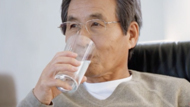Cancer: Home Treatment for Pain
Topic Overview
Not all forms of cancer or cancer treatment cause pain. If pain occurs, many treatments are available to relieve it. If your doctor has given you instructions or medicines to treat pain, be sure to follow them. Home treatment may help to reduce pain and improve your physical and mental well-being. Be sure to discuss with your doctor any home treatment you may use.
For more information, see the topic Cancer Pain.
|
Try an over-the-counter medicine to help treat your fever or pain: |
|---|
|
|
Be sure to follow these safety tips when you use an over-the-counter medicine: |
|---|
|
Other home treatments for pain include:
- Heat and cold packs, to relieve painful areas of the body. Do not use heat or cold on skin that is tender from radiation treatment.
- Distraction, which can help you focus your attention on something other than pain. Distraction also can be useful whenever you are waiting for pain medicines to start working.
- Stretching and range-of-motion exercises, to maintain strength, flexibility, and mobility.
- Simple touch or gentle massage may help. But avoid getting a massage where you have any visible tumors, open wounds, skin that is tender from radiation, or areas with deep vein thrombosis. If you are caring for someone else who has pain, you may be able to help them relax by:
- Holding the person's hand. Or gently rubbing their shoulders.
- Rubbing the person's feet with warmed lotion.
- Giving him or her a 3-minute back rub using smooth, long, gentle strokes along both sides of the spine.
You may wish to try one of the alternative therapies listed below. Be sure to talk with your doctor about which therapies might be best for you. Some of these treatments require a specialist (like acupuncture). But you can learn to do others by yourself (such as relaxation techniques). For more information, see the topic Complementary Medicine.
Health Tools
Health Tools help you make wise health decisions or take action to improve your health.
Related Information
Credits
ByHealthwise Staff
Primary Medical Reviewer E. Gregory Thompson, MD - Internal Medicine
Kathleen Romito, MD - Family Medicine
Specialist Medical Reviewer Jimmy Ruiz, MD - Medical Oncology, Hematology
Current as ofMarch 28, 2018
- Top of Page
Next Section:
Health Tools
Previous Section:
Topic Overview- Top of Page
Next Section:
Related Information
Previous Section:
Health Tools- Top of Page
Next Section:
Credits
Previous Section:
Related Information- Top of Page
Current as of: March 28, 2018



